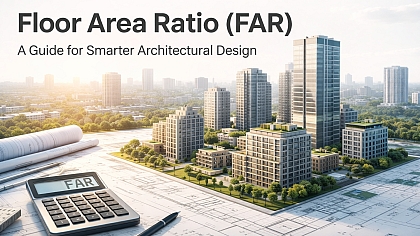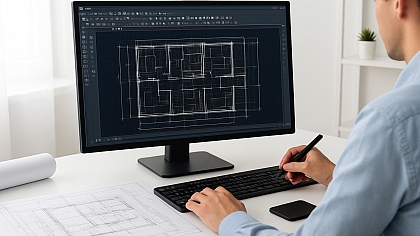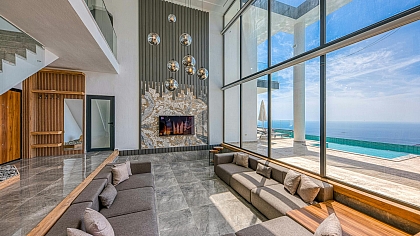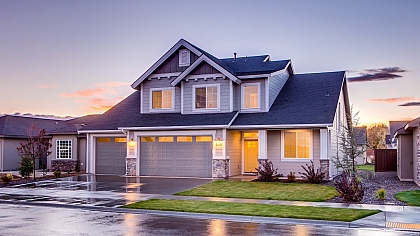
Is a Newly Built Home Worth It? A Smart Buyer's Guide
The housing market is shifting dramatically, and newly built home sales are capturing more attention than ever before. Modern buyers face tough choices between the charm of existing properties and the allure of brand-new construction. With rising costs and changing market dynamics, the decision isn't straightforward anymore.
This blog cuts through the confusion to help you determine whether investing in new construction aligns with your financial goals and lifestyle needs, covering everything from hidden costs to long-term value.
The True Cost of New Homes: Beyond the Price Tag
Understanding the real financial commitment of new construction requires looking beyond the sticker price. The cost of new homes involves various factors that many buyers don't initially consider.
Lubbock, Texas, represents a compelling example of how regional markets can offer unique opportunities for new construction buyers. The city's growing economy, driven by Texas Tech University and expanding healthcare sectors, has created steady demand for modern housing. Lubbock's relatively affordable land costs and business-friendly environment have attracted builders who can offer competitive pricing on new developments.
Buyers seeking new homes for sale in Lubbock, Tx, often find that the local real estate landscape delivers better value compared to many metropolitan areas. The combination of lower construction costs and strong local demand creates an environment where new builds can compete effectively with existing inventory.
Upfront Investment Analysis for Newly Built Homes
The purchase price represents just the starting point for your investment. In fact, during the first quarter of 2025, the median sales price of a new home was just $14,600 more than that of an existing one. This narrowing gap makes new construction more accessible than many buyers realize.
However, several additional costs require attention. Utility connections, landscaping, window treatments, and basic appliances often aren't included in the base price. Construction loans typically carry different terms than traditional mortgages, potentially affecting your financing strategy. Many buyers also underestimate the cost of furnishing a space.
Long-term Financial Impact Assessment
Buying a new home offers significant financial advantages over time. Maintenance costs typically remain minimal for the first five to seven years, potentially saving thousands annually compared to older properties. Energy-efficient systems, modern insulation, and updated appliances contribute to lower utility bills from day one.
New construction often comes with builder warranties covering major systems and structural elements. These protections can save substantial money on unexpected repairs that commonly affect older homes. The predictable maintenance schedule allows for better budget planning and fewer surprise expenses.
New construction markets tend to appreciate steadily, especially in developing areas where infrastructure improvements and community amenities continue expanding. This appreciation potential often justifies any initial premium paid for new construction.
Benefits of New Construction That Matter
Modern construction offers advantages that extend far beyond fresh paint and updated fixtures. These benefits of new construction can significantly impact your daily life and long-term satisfaction.
Customization Advantages That Pay Off
New construction allows you to tailor your home to your specific needs and preferences. Floor plan modifications, finish selections, and structural upgrades can be incorporated during the building process at reasonable costs. This customization eliminates the need for expensive renovations after moving in.
Smart buyers focus on upgrades that enhance resale value. Kitchen islands, additional electrical outlets, and upgraded flooring typically provide strong returns on investment. Technology infrastructure, including enhanced WiFi capabilities and smart home wiring, increasingly appeals to future buyers.
The ability to choose energy-efficient upgrades during construction often costs less than retrofitting later. Window upgrades, insulation improvements, and HVAC enhancements become part of your mortgage rather than requiring separate financing.
Modern Living Standards You Can't Retrofit
Today's building codes require safety features and construction standards that older homes simply can't match. Advanced electrical systems, improved fire safety measures, and modern plumbing standards provide peace of mind that's difficult to achieve through renovations.
Build times for new construction have improved significantly, with some methods reducing construction timelines by 30–60%, allowing for quicker returns on investment. This efficiency means less time waiting and more time enjoying your new home.
Open floor plans, higher ceilings, and larger windows create living spaces that feel more spacious and bright. These design elements, standard in new construction, would require major renovations to achieve in older homes.
Newly Built Home Pros and Cons: The Complete Analysis
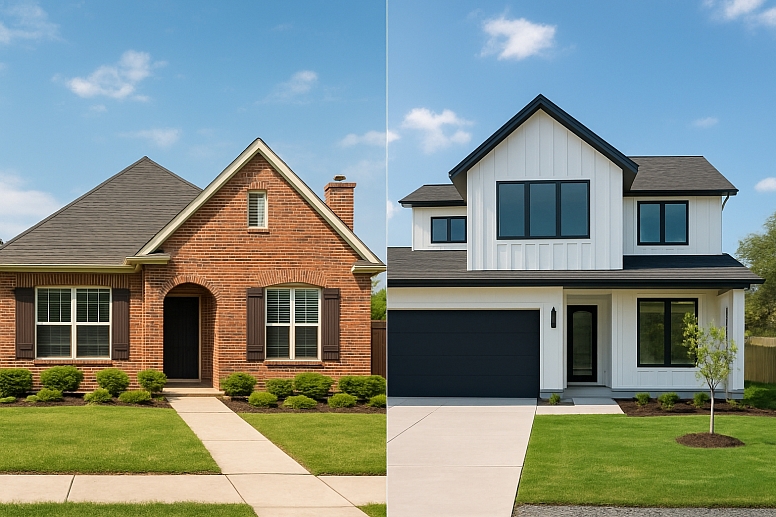
Every home choice involves trade-offs, and new builds offer both strong advantages and a few drawbacks worth weighing.
Why It’s Worth the Investment
New construction is ideal for long-term buyers. Warranties on structure and systems reduce early repair costs, while energy-efficient designs lower monthly utility bills, often offsetting the initial premium.
New neighborhoods also tend to offer modern amenities like parks, trails, and community centers, boosting quality of life and property value over time.
Things to Keep in Mind
Delays are common due to weather, permits, or supply issues. Early-stage communities may lack mature landscaping or nearby conveniences.
HOA fees and restrictions can also impact flexibility and add to ongoing costs—important factors to consider before committing.
Smart Buyer Tips for New Construction
Buying a newly built home requires a different approach than purchasing an existing one. These tips can help you make smart, informed decisions.
Research the Builder
A builder’s reputation impacts your overall experience. Look into their financial health, build quality, and customer reviews. Visit completed communities and talk to past buyers.
Review warranty terms closely—some offer more comprehensive coverage than others. Also, check local permit and inspection records to spot any recurring issues.
Understand Warranty Coverage
New home warranties vary, but usually cover structural elements and major systems. Know what’s included and compare builders.
Schedule inspections during construction, and never skip the final walkthrough. It’s your last chance to catch and document issues before closing.
Common Questions About New Construction
Is it better to buy a new build or an old house?
Newly built home purchases typically offer lower maintenance costs, modern safety features, and energy efficiency that older homes can't match. However, existing homes often provide established neighborhoods, mature landscaping, and immediate availability.
What are the advantages of owning a newly built home?
Buying a newly built home offers unique advantages, from customization options and energy efficiency to minimal maintenance and cutting-edge technology. These benefits make new construction an excellent choice for buyers seeking modern comfort and strong investment potential.
Do newly built homes hold their value?
New construction typically appreciates steadily, especially in growing communities with planned amenities and infrastructure improvements. Quality construction and modern features often help maintain competitive resale values compared to older properties requiring updates.
Newly built home purchases make sense for buyers who value modern amenities, energy efficiency, and minimal maintenance over immediate availability and established neighborhoods.
The cost of new homes has become more competitive recently, while the benefits of new construction continue to expand with improved building techniques and technology integration.
Your decision should align with your timeline, budget, and long-term housing goals. New construction offers compelling advantages for buyers willing to invest in modern living standards and future appreciation potential.

